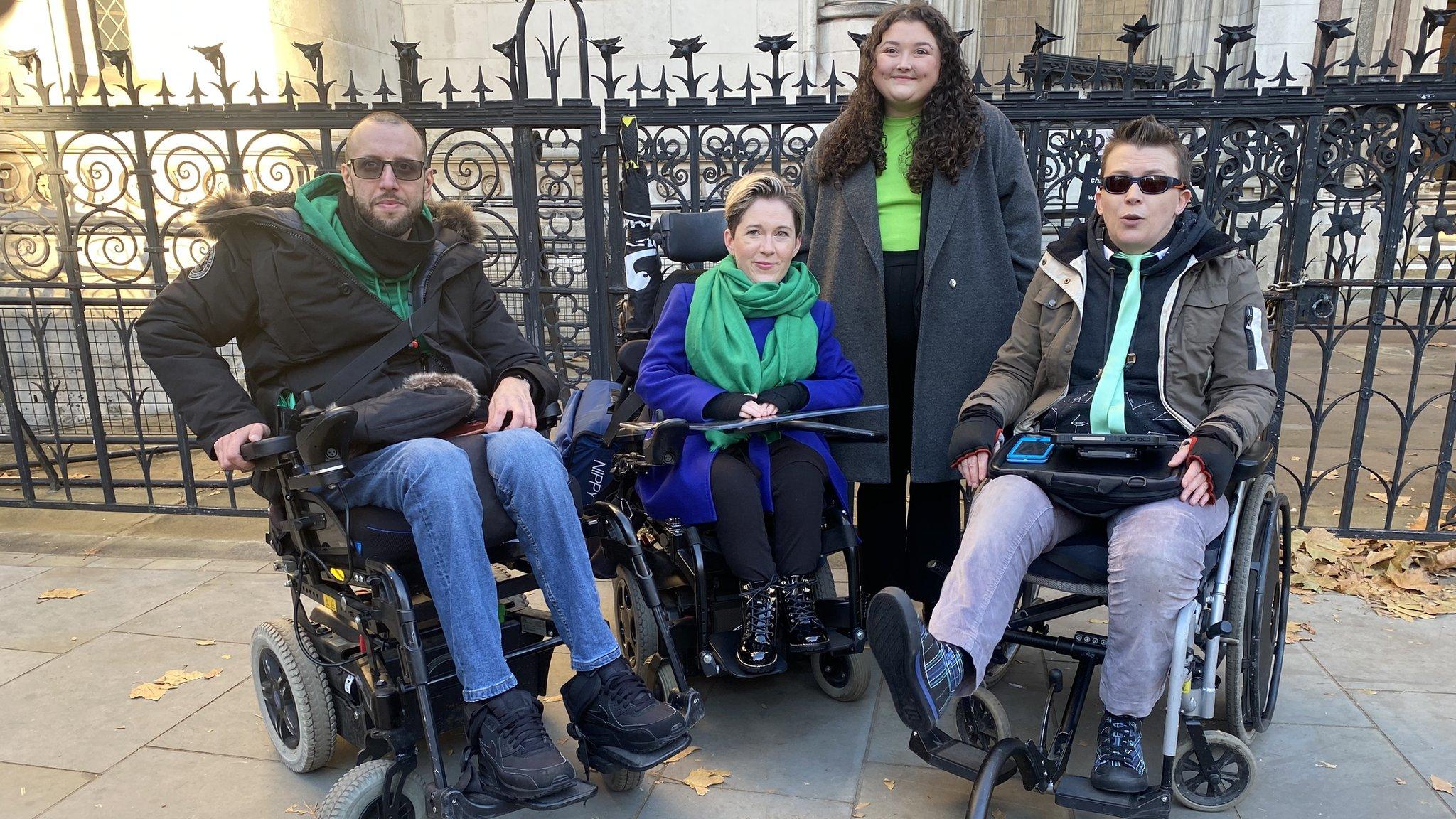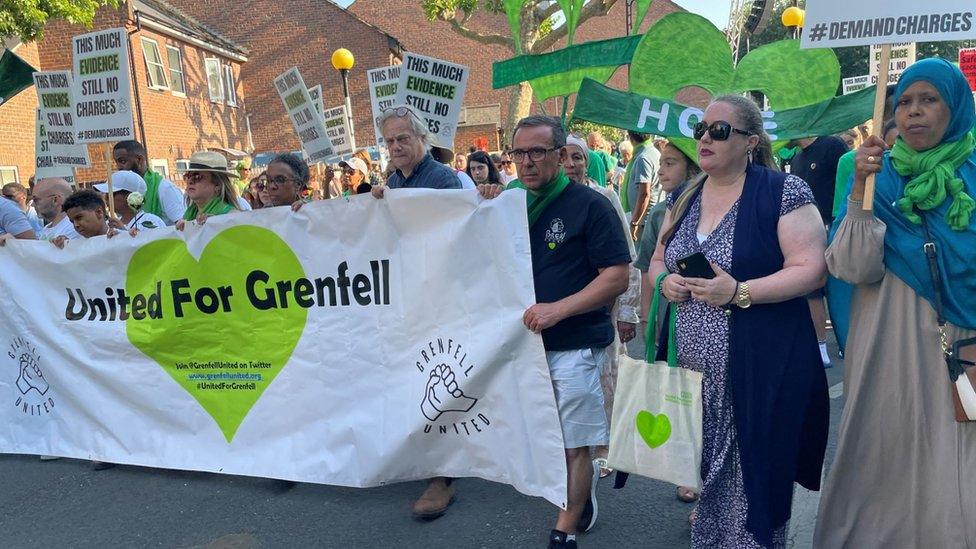Disability campaigners lose legal fight over Grenfell recommendation
- Published

Campaign group Claddag, founded by Georgie Hulme (right) and Sarah Rennie (centre-left), took the government to the High Court
Campaigners have lost their High Court battle with the government over its decision not to implement evacuation plans for disabled high-rise residents.
Campaign group Claddag wanted it to be a legal requirement for escape plans to be in place for those who might not be able to get out safely in an emergency.
But a Home Office consultation found the Grenfell Tower Inquiry's recommendations would be too costly and impractical to implement.
It is pursuing an alternative idea.
In October 2019, the chairman of the Grenfell Inquiry recommended that there should be a legal requirement for owners and managers of high-rise residential buildings to prepare "Peeps" (personal emergency evacuation plans) for residents with mobility issues or visual, hearing or cognitive impairments.
In the Grenfell fire, which killed 72 people in June 2017, 41% of the tower block's disabled residents died.
In response to the inquiry's recommendations, the Home Office launched a consultation on whether to implement the Peeps proposals.
In May 2022, the government indicated that it would not be introducing a legal requirement for Peeps amid concerns about practicality and cost.
Claddag, which was founded by two disabled tower-block residents, Sarah Rennie and Georgie Hulme, took that decision to a judicial review at the High Court in December.
During the hearing, the Home Office's legal representative argued that the government was actually still consulting on the proposals and a final decision had not yet been made.
Announcing her judgment on Friday, Mrs Justice Stacey ruled that the government had in fact decided against implementing the Peeps recommendation, but said it was entitled to do so after weighing up the fire-safety implications against the costs of delivering it.
In a joint-statement, Claddag's founders said the government had decided to "prioritise money over disabled people's lives" and "leave disabled and older people living in high-rise buildings without means of escape".
A Home Office spokesperson said: "We are pleased with the court's decision as it allows us to get on with delivering proposals that enhance the safety of residents whose ability to self-evacuate in an emergency may be compromised.
"We are currently analysing responses to our public consultation on Emergency Evacuation Information Sharing Plus, which is an alternative to Personal Emergency Evacuation Plans, to understand how best to achieve this."
- Published14 June 2023

- Published27 May 2022

- Published20 April 2021
